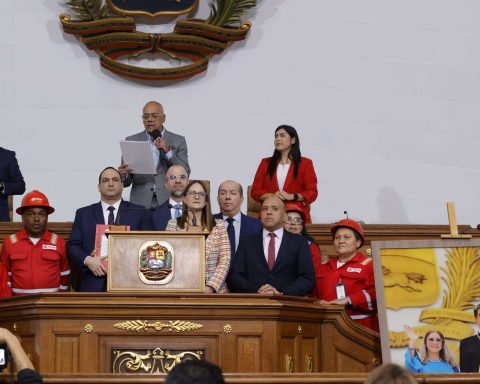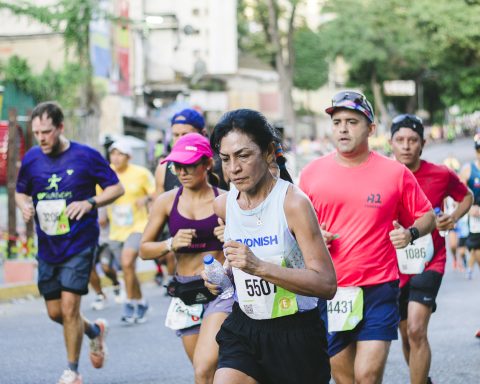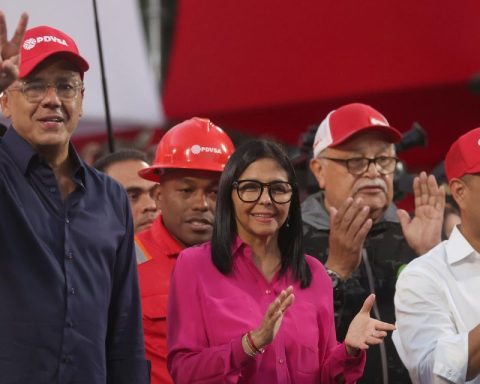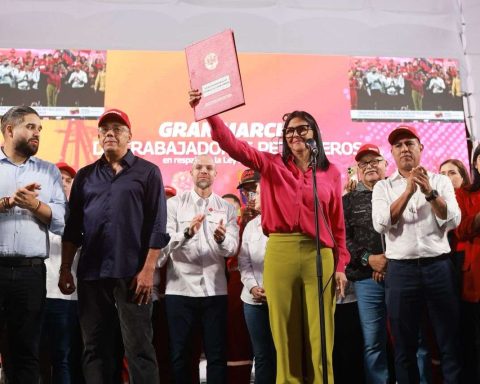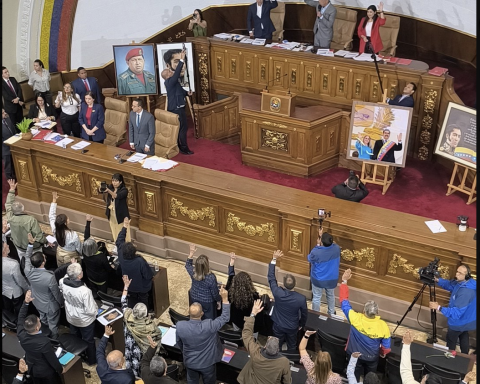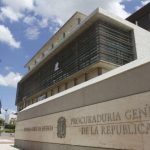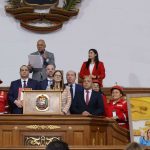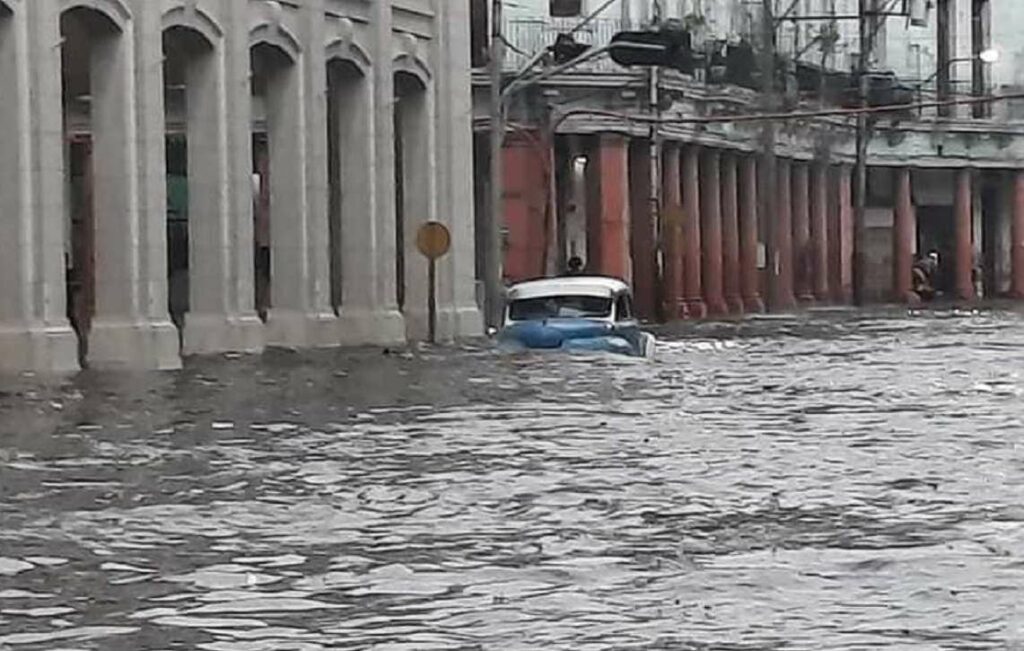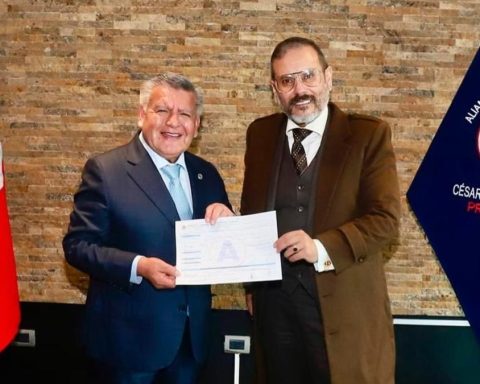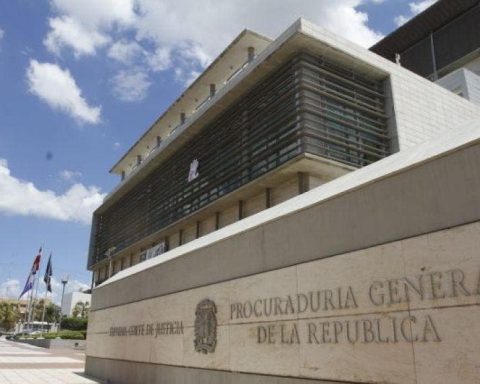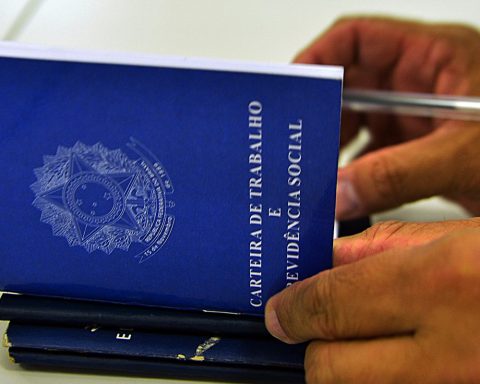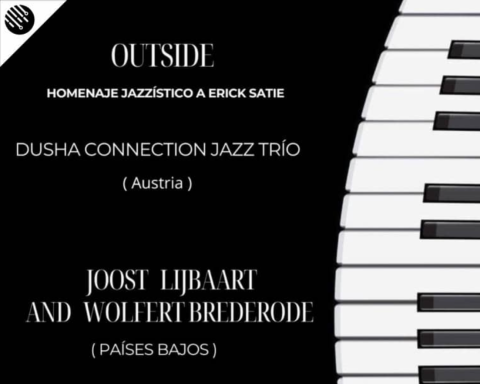The Convivium Observatory, which is part of the Popular Research Center, points out that the occupation of the communal system is given by the sense of occupying territory. 89% of those surveyed in 16 states indicated the existence of the CLAP structure in their communities. “There is a permanent struggle between the community and communal spectrum,” said Mirla Pérez, director of the CIP
Communities besieged by the domination of the communal system, the advances of armed gangs and the aftermath of a complex humanitarian emergency. These were the results found by the Convivium Observatory, which is part of the Popular Research Center (CIP), during the preparation of the report “Living in Venezuela 2022”.
The report, prepared from 638 interviews in 16 states of the country and which analyzed community dynamics in popular areas, pointed out that there is a “permanent struggle” and a clear difference between what is communal and what is community, the latter that survives through traditions, systems of coexistence and neighborhood.
«The communal system has been imposed and is managed under the logic of domination. Violence does not necessarily have to be a war, violence is coercion for a box, for a bonus,” said Mirla Pérez, sociologist and director of the Center for Popular Research.
*Read also: PSUV in the AN accelerates communal State by reforming the Social Comptrollership Law
Due to these confrontations, Pérez considers that it is difficult to speak of a unified nation, “we are seeing a fragmented territory” with differentiated realities in each region.
The also doctor in Social Sciences highlighted that the communal penetration is given by a sense of occupation. When consulting within the communities about the presence of communal power structures, an idea promoted by the government of former President Hugo Chávez, the Local Supply and Production Councils (CLAP) are present in 89%.
CLAPs, the subsidized food program created by the Nicolás Maduro administration in 2016, are not welcome in communities. 93% of those consulted affirmed that they want to solve the food issue on their own, while 43% expressed that they prefer to solve it on their own but are forced to receive CLAP because they do not have enough income to guarantee the diet of all their Family nucleus. Only 7.3% stated that they prefer to receive the CLAP.
*Read also: Seven years after the CLAPs, the nutritional needs of the family are still not being met
“With this, the issue that the communities are lazy and want to be supported by the State is demystified. No, they want to have a job and a bonus that allows them to buy the food they want, “said Pérez.
81% of the communities report the presence of communal councils, just over 50% of the Bolívar-Chávez Battle Units (UBCH), and 14% the Socio-Political Articulation and Action Networks (RAAS), a structure of the United Socialist Party of Venezuela (PSUV).
Communities “reset”
The problems unleashed by the complex humanitarian emergency and the crisis of public services do not stop the communities, which “reset” themselves every day to resolve their particular dynamics, found the Center for Popular Research.
The majority (63%) choose to solve their problems individually, while 20% resort to community meetings or neighborhood solutions. 8% see the protest as a way to find a solution to the service crisis and only 3% rely on the CLAP or community councils to achieve a response.
For example, 36% affirmed that they solve the gas shortage through autonomous means, either with electric stoves or by paying a premium for cylinders. 63% directly solve their problems related to electricity.
Regarding public health, 30% go to public hospitals but most are forced to resort to other sources (direct family, potazos, contributions from people outside the country) to be treated.
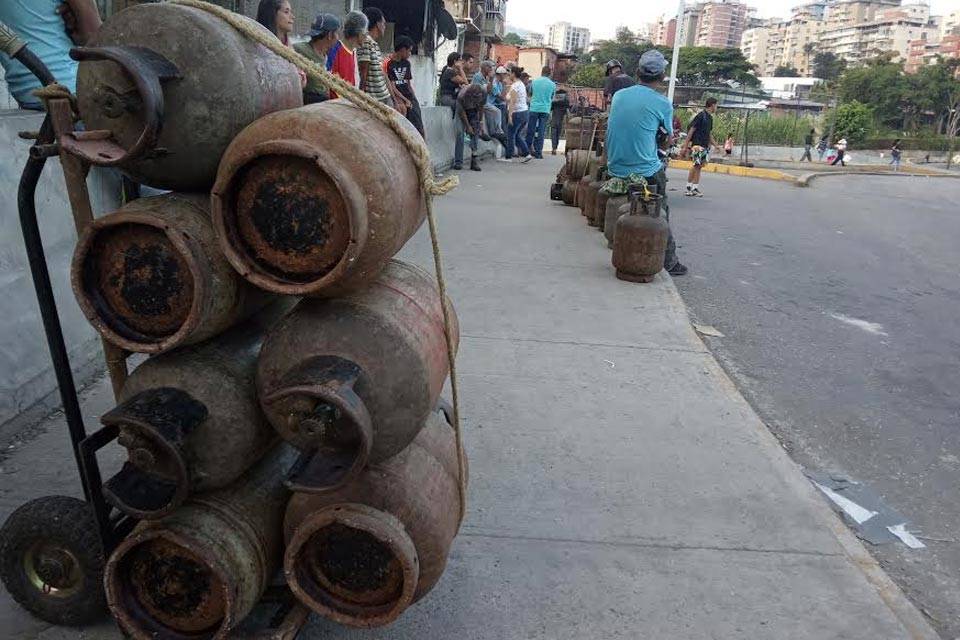
Regarding the migratory dynamics, socioeconomic and work reasons are the main reasons given for leaving the country. 86% of people indicated that they have one or more relatives outside of Venezuela. Colombia, the United States and Peru continue as the main destinations for Venezuelan migration.
The situation of children and older adults with respect to migration is similar. Each interviewee said they were aware of at least five children or older adults who were left behind.
In the case of boys and girls, 65% are left in the care of grandparents, but older adults are left without a close family structure to sustain themselves. 47% of older adults who are alone within the communities use neighborhood help, remittances and some obtain resources through vouchers or begging.
The Popular Research Center also analyzed depopulation and determined that, of the people who migrate, 61% left their homes alone, which entails a risk of invasion or illegal occupation. These properties that are being abandoned are also taken over by criminals for their activities.
endangered childhood
The Popular Research Center emphasized the situation of children and adolescents due to the implementation of “mosaic schedules” in schools. In most of the communities it was reported that they are only giving classes two days a week.
“This endangers the entire educational system and our children are on the street. What do the children do in the street? 33% say they play games, but they also do mischief, commit crimes. They become part of the observer network and become part of criminal gangs,” said Mirla Pérez.
The fact that the child and adolescent are on the street makes them a vulnerable group, reiterated the sociologist. The Center highlighted that the minimum age for recruitment into gangs was 10 years, but in some communities that gap was reduced to 8 years.
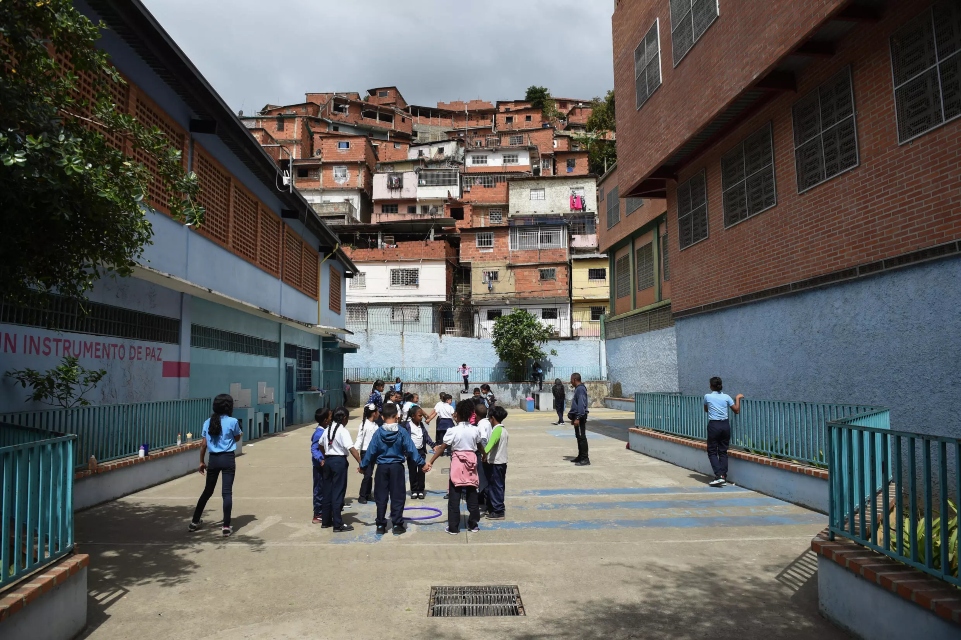
Children play in the playground of the Manuel Aguirre school in the La Bombilla neighborhood, in Caracas on February 23, 2023 © Miguel ZAMBRANO / AFP
“Even these young children are subjected to cruel punishment when they do not fulfill their role within these gangs or denounce that they were pushed into them,” the researcher highlighted.
Another issue highlighted by the Center is the use of public education and its institutions as “instruments of political domination.” 81% of respondents reported that public schools have been used for political purposes. “The official politicians take refuge in these institutions to anchor the communal apparatus,” said Pérez.
present insecurity
Insecurity is another of the issues evaluated by the Center for Popular Studies. The sociologist Jesús Flores pointed out that 62% of those consulted said that they perceive situations of insecurity within their communities. Robberies, consumption and drug trafficking, and extortion are reported in a higher percentage, which occur mostly to small businesses, as reasons of insecurity in popular areas.
The structure of the pranato is also present in the communities (16%), as well as the domain of the armed gangs (28%), which little by little are adding territories to obtain higher rents.
There is also a perception that the security forces commit these same crimes. 18.4% of those consulted said that the police commit abuses of authority, while 7.8% assured that members of the PNB participate in drug trafficking and extortion.
Another issue highlighted by the Center is that, just like boys, adolescent girls have a particular role as informers within armed gangs. There are also women who join gangs as power figures. In the San Agustín neighborhood, west of Caracas, they were able to identify a Pran woman.
Flores stressed that “since there is no intention on the part of the State to set limits and control it, it is an issue that will continue to grow due to the control of society.”
Post Views: 644
